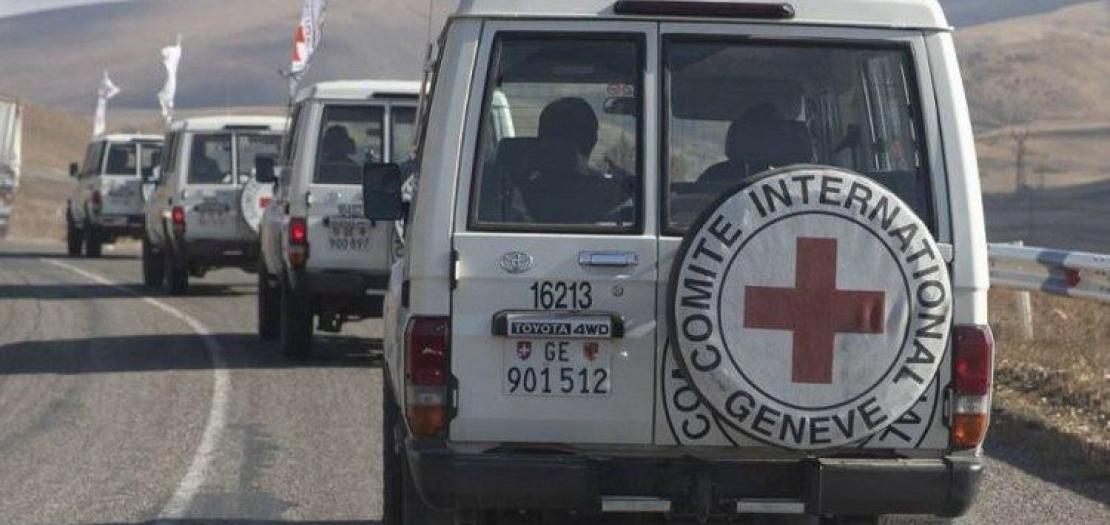Issued by the Catholic Center for Studies and Media - Jordan. Editor-in-chief Fr. Rif'at Bader - موقع أبونا abouna.org

The Holy See has once again firmly denounced the systematic violation of International Humanitarian Law (IHL) amid ongoing conflicts around the world, including in the Middle East and Ukraine, reiterating that indiscriminately striking civilians is morally “unacceptable”.
Slaughtered civilians can never be considered ‘collateral damage’
Addressing the 34th International Conference of the Red Cross and Red Crescent underway in Geneva, Switzerland, the Vatican Permanent Observer Archbishop Ettore Balestrero, decried that civilian population continues to be victimized in armed conflicts by indiscriminate attacks in contravention of international law. “Slaughtered civilians can never be considered ‘collateral damage’”, he said.
“It is extremely alarming that, despite the strict obligation to distinguish between military objectives and civilian objects, “there is no conflict that does not end up in some way indiscriminately striking the civilian population”.”
Use of explosive weapons in densely populated areas
Archbishop Balestrero, also reiterated the Holy See’s deep concern about the use of explosive weapons in densely populated areas, causing displacement and extensive devastation to towns, schools, hospitals, places of worship and infrastructure vital to the civilian population.
He recalled that the observance of International Humanitarian Law is “not only possible but, moreover, compulsory”, reaffirming, with Pope Francis’ words, that even amid the devastations of war every person is sacred.
“We cannot consider conflicts to be inevitable, nor can we deem everything permissible in times of war.”
Spreading public awareness on International Humanitarian Law
In the face of the current troubling world context, Archbishop Balestrero highlighted the urgent need for an educational process aimed at disseminating International Humanitarian Law and its ethical foundation and pledged the Catholic Church’s support in “reawakening the public conscience” on these issues.
Need to stem weaponization of AI in conflicts
This, he remarked, is all the more important today in light of technological advancements and the weaponization of artificial intelligence, which is rapidly becoming a central element in the conduct of hostilities.
In this regard, the VNuncio said the Holy See advocates for the responsible use of digital and cyber technologies, urging that they be reserved “for peaceful purposes, cooperation, and mutual enrichment.”
“The preservation of the centrality and dignity of the human person, the safeguarding of the fundamental principles of humanity, and the defence of the supreme value of life must remain firmly present in the collective consciousness.”
Holy See's commitment
In order to contribute to this awareness effort, Archbisop Balestrero said that the Holy See has pledged to three commitments in the four coming years: training Catholic military chaplains in International Humanitarian Law, promoting its ethical foundations, especially for protecting civilians and religious sites, and cultivating interreligious dialogue in order to foster mutual respect, which contributes to the defence of human dignity and to the advancement of the values that inform IHL.
Recalling once again that “war is always a defeat of humanity”, Archbishop Balestrero concluded by renewing Pope Francis’ appeal that “not weapons, not terrorism, not war, but compassion, justice and dialogue [be] the fitting means for building peace”.
Themes discussed at the Conference in Geneva
The 34th International Conference of the Red Cross and Red Crescent runs from 28-31 October bringing together representatives from 191 National Red Cross and Red Crescent Societies and 196 States party to the Geneva Convention. Under the theme Navigate Uncertainty – Strengthen Humanity the Conference's agenda focuses particularly on compliance with international humanitarian law; enhancing the protection of civilians and humanitarians; the promotion of sustainable locally-led humanitarian action; anticipation, preparation, and adaptation in the face of the climate challenge, the importance of ‘disaster law’; the impact of digital technologies in warfare.







